Losing a child is one of the most painful and soul-crushing things that can happen to a person. In times of grief, the support that your family and friends offer you can help you in small ways. But the last thing you want or need is for someone to pour salt on the wound.
One redditor turned to the AITA online community for some advice on how she should proceed in an incredibly sensitive situation. Her husband’s friend had a “traumatic miscarriage,” and the couple was considering how they might go about asking for their expensive baby shower gift back… and if it was too insensitive. Read on for the full story and to see what the internet said to help the OP come to her senses.
Friends need to support one another in each other’s time of grief, instead of acting in an insensitive way
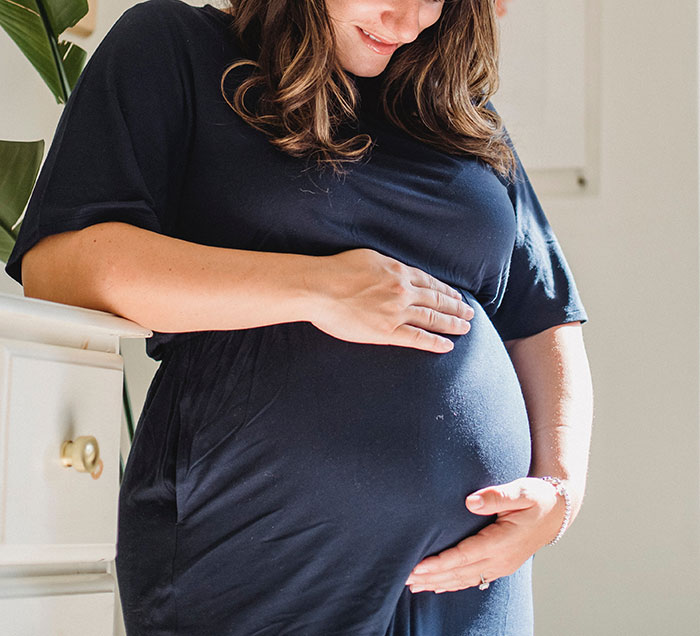
Image credits: Amina Filkins (not the actual photo)
One woman asked the internet what she should do about a baby shower gift she and her husband had given to a friend who had a miscarriage


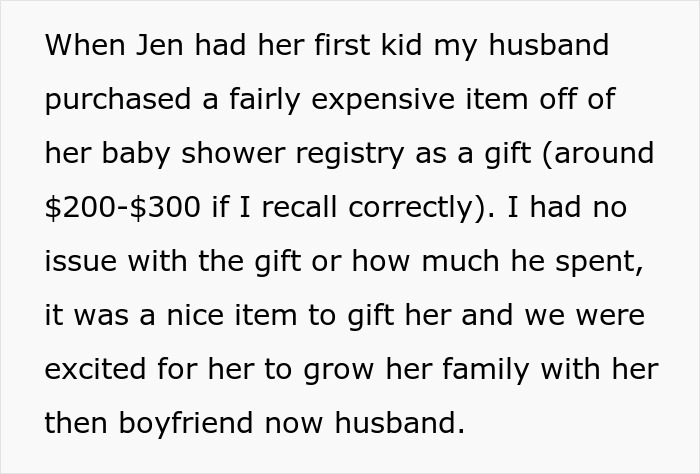

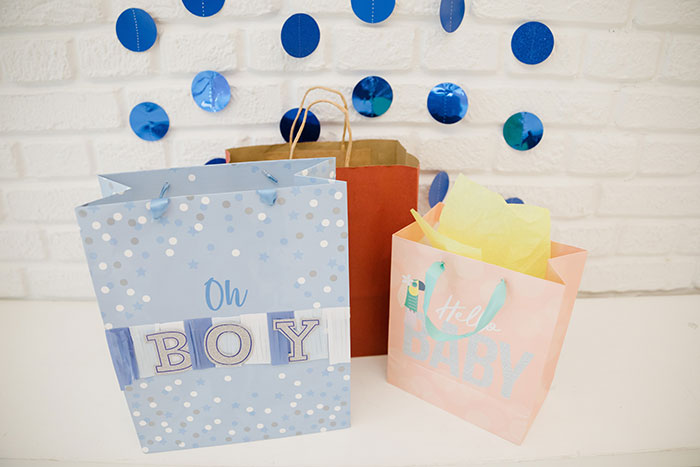
Image credits: RDNE Stock project (not the actual photo)
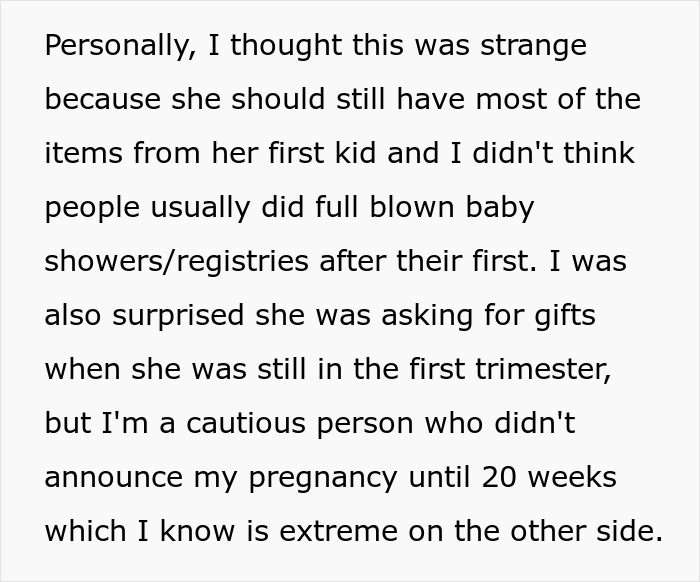

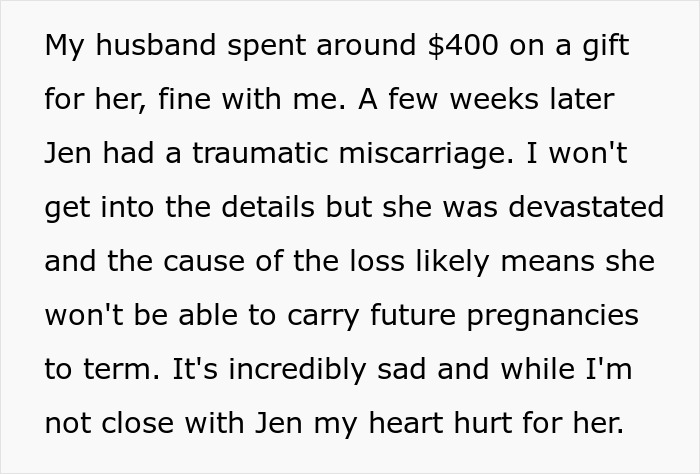

Image credits: RDNE Stock project (not the actual photo)
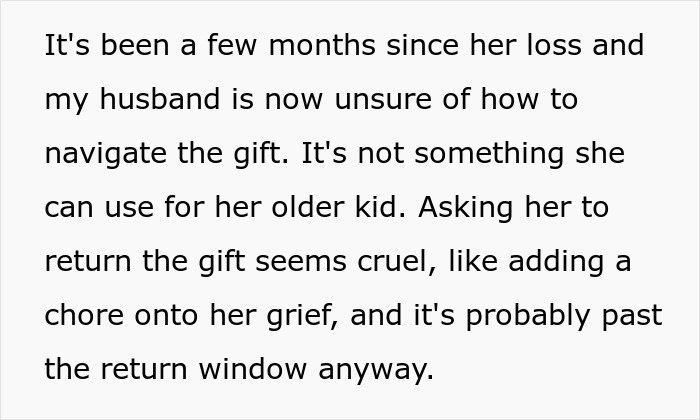
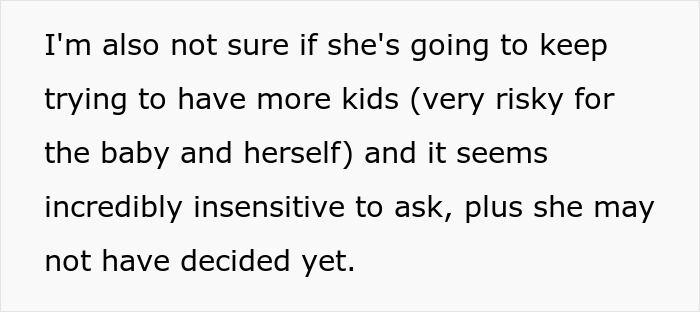
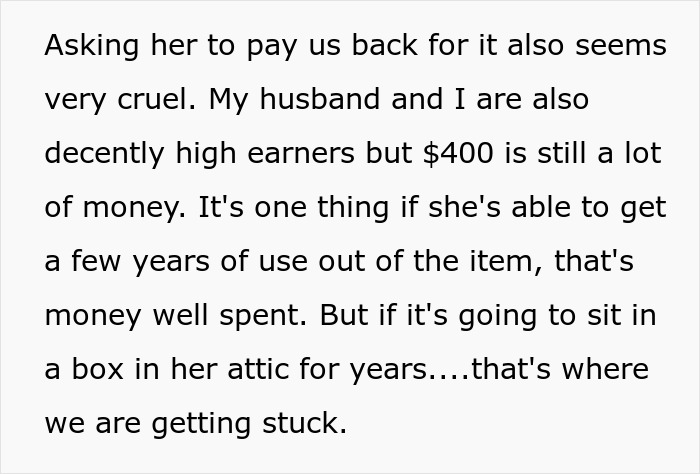
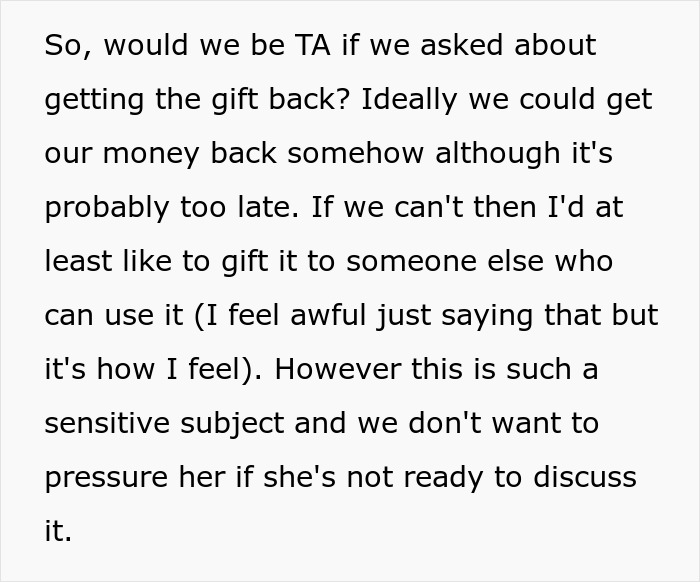
Image credits: u/[deleted]
The woman’s query started a very important discussion online

Image credits: Suzy Hazelwood (not the actual photo)
The absolute majority of readers thought that the author of the post was prioritizing the wrong thing in this situation. The gift wasn’t essential, no matter how much it cost. What was important was respecting the woman’s grief, and supporting her in this incredibly difficult time, in any small way that they could.
One redditor put it very accurately that gifts do not come with terms and conditions. “You gave it away. It’s gone,” they wrote. Others urged the OP to show more compassion.
After reading through the comments, the OP decided that she and her husband wouldn’t go through with their initial idea: they’d respect their friend and wouldn’t ask for their present back. The author of the post also ended up deleting her account after making this decision, so we weren’t able to reach out to her.
Finding people who can support you can help after the devastating loss
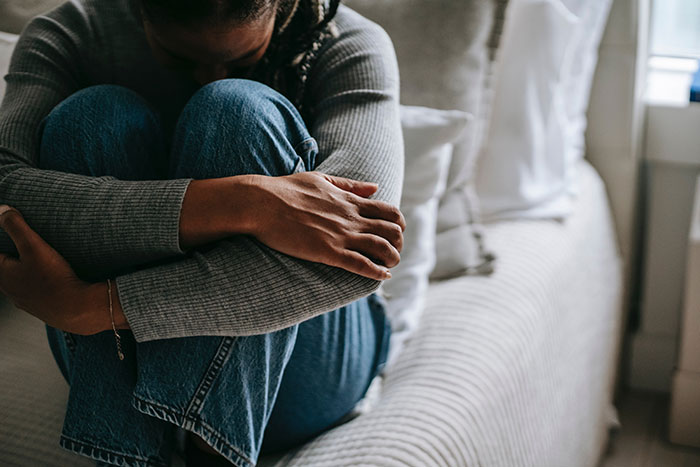
Image credits: Alex Green (not the actual photo)
Unfortunately, 15% to 20% of diagnosed pregnancies miscarry. Most before 12 weeks. Genetic abnormalities are the most common cause of miscarriages. “Everyday activities, such as exercising, working, and having sex, don’t cause miscarriages. Yet many women still blame themselves,” ‘Stanford Medicine’ writes.
Losing the baby earlier does not mean that it is “easier to handle” than later on in the pregnancy. Family and friends should avoid telling women that they shouldn’t be upset.
“If you’re a woman who has been through a miscarriage, remember that your feelings are normal. Remember also that some women are hit harder than others. Allow yourself to experience the grieving process in your own way and at your own pace. It’s common to feel fine one day and terrible the next.”
Having someone you can turn to for support and advice can help. Women who have miscarried could, for instance, seek out support groups uniting other women who have dealt with similar losses. It’s also essential to remember that it’s not a sign of weakness to ask for help from professionals like mental health counselors.
According to ‘Stanford Medicine,’ men and women tend to respond to miscarriage in different ways. The former “shift into problem-solving mode” and may feel completely helpless that they can’t find a solution to the grief.
Some men might not bring up the subject of the baby because they don’t want to see their partner cry, but this might make it seem as though they don’t care, which might not be the case at all. Open and honest communication, as well as sharing feelings, is absolutely vital.
Some triggers can remind women of their miscarriage
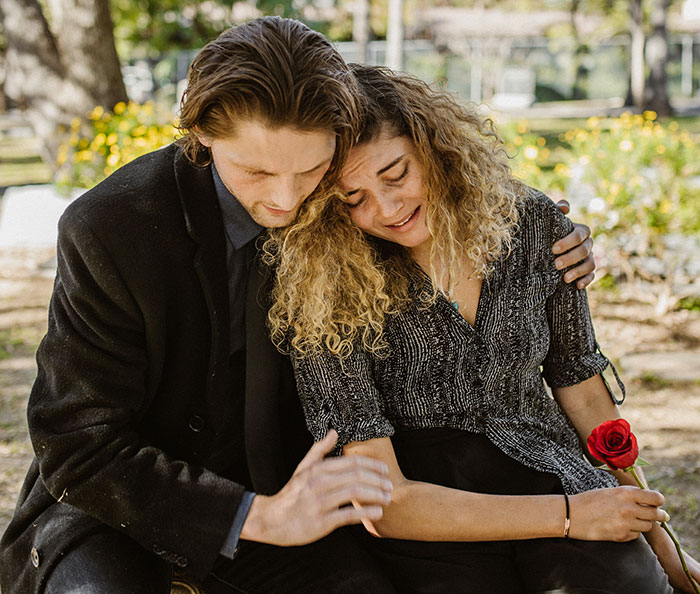
Image credits: RDNE Stock project (not the actual photo)
The American Pregnancy Association urges women who have miscarried to reach out to those closest to them and ask for their understanding and support, to seek counseling, and to allow themselves time to grieve.
“Women may experience a roller coaster of emotions such as numbness, disbelief, anger, guilt, sadness, depression, and difficulty concentrating. Even if the pregnancy ended very early, the sense of bonding between a mother and her baby can be strong,” the APA says.
In some cases, this emotional distress can lead to physical symptoms, from fatigue, trouble sleeping, and difficulty concentrating, to a loss of appetite, frequent crying, deteriorating relationships, and thoughts of self-harm.
The grieving process has three stages: it begins with shock and denial which then leads to feelings of anger, guilt, or depression. The final stage is acceptance. The APA explains that each step takes longer than the previous one, and there can be setbacks. Some triggers that can lead to setbacks include baby showers, birth stories, visits to the gynecologist, family reunions, thoughtless comments, and seeing nursing mothers.
Many internet users were shocked after reading the story. Here’s how they reacted




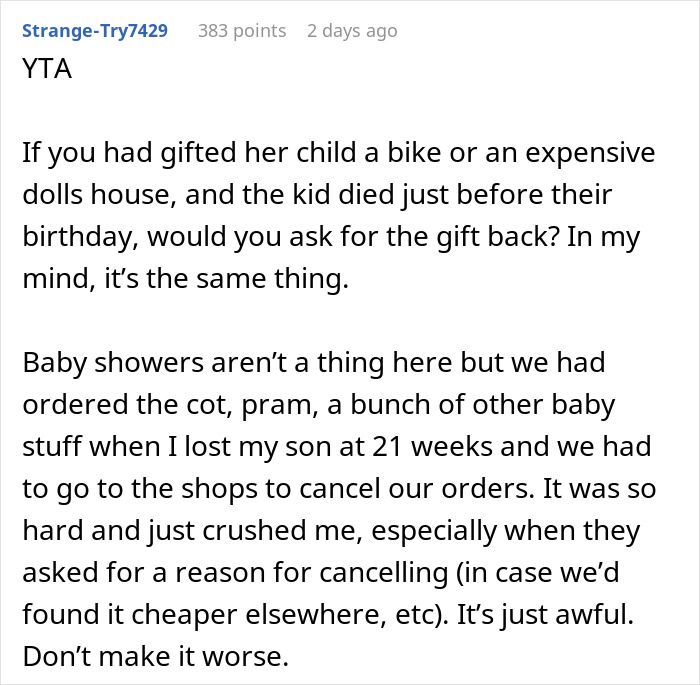


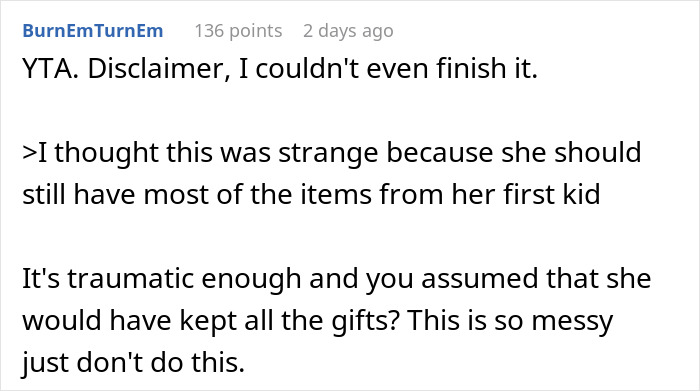



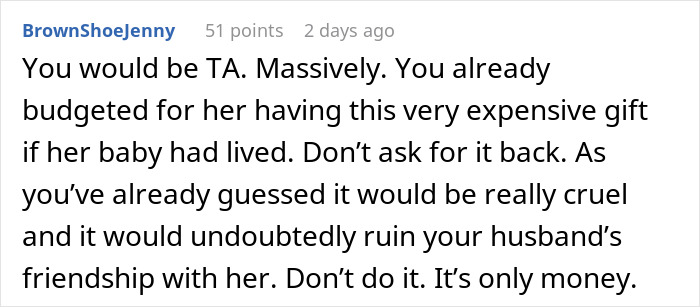
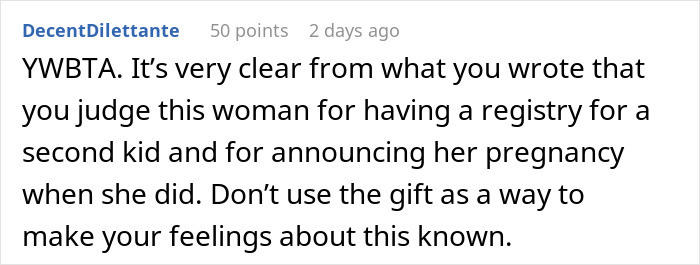




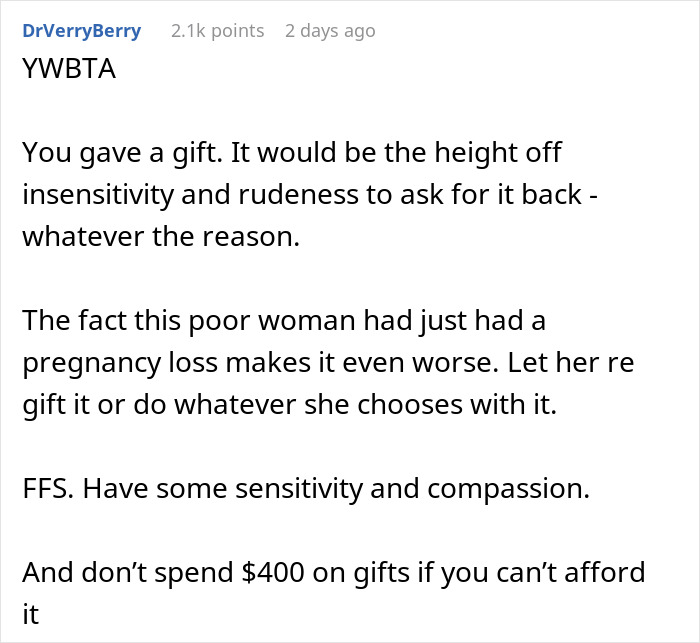

The author of the post read through the comments and eventually gave an update on how she’ll proceed
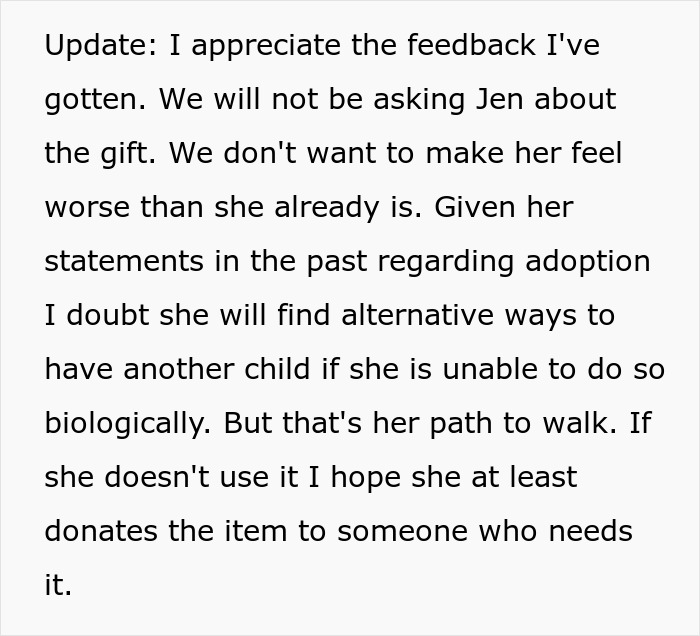


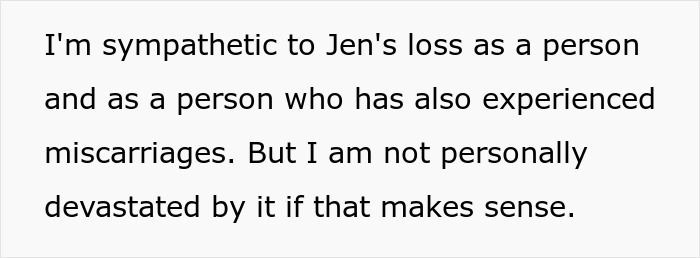
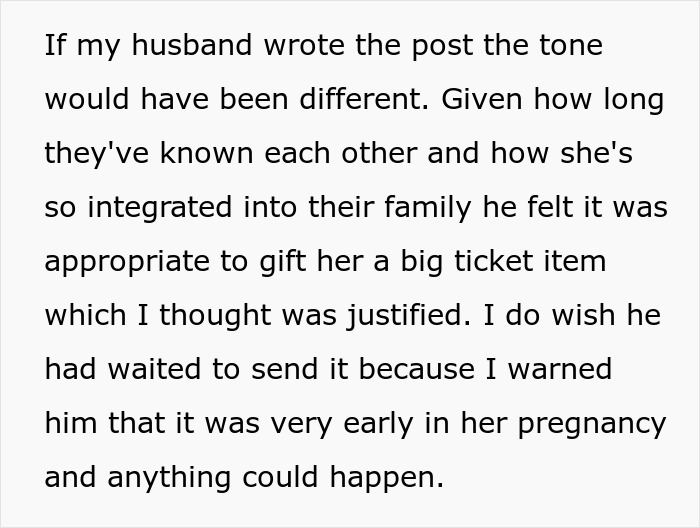

The post Woman Faces Backlash For Wanting Her Expensive Baby Shower Gift Back After Her Friend Miscarries first appeared on Bored Panda.
















